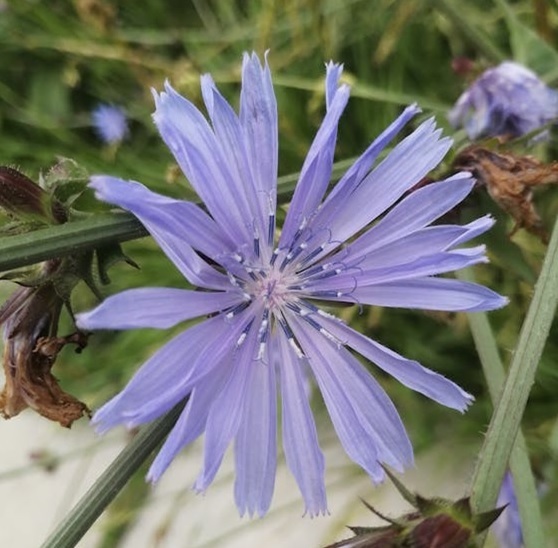Posted by Raw Revelations on Oct 9th 2024
Caffeine’s Unseen Impacts: Why an Herbal Coffee Might Be Better
Americans drink between 24 and 28.8 fluid ounces of coffee per day, on average - at least according to the National Coffee Association. That’s over three cups per day. The same association determined that 77% of Americans aged 18 and older drink coffee daily.
That’s no surprise, considering it is one of the most widely consumed beverages in the world, not just in the United States.
The popularity has given rise to coffee bars and coffee houses, and the trend is only increasing. The drink is not only pleasant to the gustatory senses, but many rely on it to help get their days started.
But the truth is that coffee’s content of caffeine, which is an addictive substance, produces many more effects on the body than just alertness. Some of these are not desirable, and as a result, for some consumers, an herbal coffee replacement might be a better choice.
Let’s take a look at the shadier side of caffeine.
Insomnia
It should come as no surprise that caffeine, which is a potent stimulant, is implicated in insomnia.
Caffeine consumption can result in insomnia while also adversely affecting sleep duration. In addition to complicating sleep onset and resulting in less sleep, caffeine can also limit the duration of restorative deep sleep that your body needs.
All in all, this is not good for anyone that struggles to get a good night’s sleep, and is quite evident.
Fatigue
Ironically, among those who consume coffee chronically, it can cause fatigue as opposed to insomnia. This is counterproductive, since most who drink coffee drink it primarily to stay alert or awake.
One of the ways in which caffeine keeps you awake is by interfering with adenosine in the brain. Once the coffee is metabolized, however, it can make you feel more tired than ever, making you want to consume more - which is not a good cycle.
Headache

Coffee withdrawal can trigger a headache. Anyone that’s used to drinking coffee and quits cold turkey can tell you this. But plain old coffee consumption can cause a headache, too.
This is because coffee constricts the blood vessels in the brain. Halting consumption, even in the short term, enlarges them and increases pressure on the surrounding nerves, and can result in a headache.
Tachycardia
While most people will never experience adverse effects from normal, moderated caffeine consumption, those with high blood pressure and other heart issues should limit consumption. This is because caffeine has a demonstrable ability to raise the heart rate in many individuals.
Caffeine encourages the release of noradrenaline and norepinephrine, both of which are hormones and neurotransmitters, within the body. These two will both increase the heart rate, and in some individuals can result in palpitations or even cause arrhythmias.
High Blood Pressure
Everyone responds differently to caffeine, and again, under normal circumstances most individuals would experience no adverse effects. However, caffeine does have the potential to raise the blood pressure, which can be a problem for people that live with underlying hypertension.
These are among the reasons that the American Heart Association has suggested that those with hypertension should limit their coffee consumption to one cup per day - or seek alternatives, like green tea, which thanks to its high antioxidant content, may offer potential cardioprotective benefits.
Digestive Issues
The potential incidence of digestive issues as a result of coffee consumption (or overconsumption) may be a result of the drink itself and not caffeine, but it is a concern nonetheless.
Coffee is a highly acidic drink, and as a result can of itself cause heartburn. However, it is also the case that coffee consumption may be implicated in dyspepsia, and can cause symptoms such as poor digestion, discomfort, nausea, and more.
Diuresis
This one hardly needs a citation - if you’ve ever drank a lot of coffee, you know it has a propensity to send you to the bathroom. This is because caffeine is a diuretic, a substance that stimulates production of urine. This is more of an inconvenience, for most, than a medical concern, but it can still affect your quality of life, especially depending upon the unique demands of your job.
Irritability, Anxiety and Restlessness
Everyone responds to caffeine differently, both at normal concentrations and when overconsumed. However, some individuals may find that coffee consumption increases feelings of malaise, irritability, anxiety and restlessness, which may arise from its nature as a stimulant.
Consider an Herbal Coffee As an Alternative

All of these reasons, and more, give credence to the viability of herbal coffee as an alternative. Ours is made from a rich, full-bodied mix of chicory root (often used as a coffee alternative) as well as beetroot, dandelion root, and roasted barley.
It is also formulated with other potent herbs, including but not limited to ashwagandha, holy basil, triphala, tribulus, and shilajit, all of which offer their own unique benefits.
It is acid-free, caffeine-free, organic, vegan, and made without fillers, gluten, soy, refined sugar, or GMO ingredients. It’s also easy to use - just mix some in warm tea or water and enjoy this herbal coffee, which is adaptogenic and supports natural energy production without relying on caffeine.

